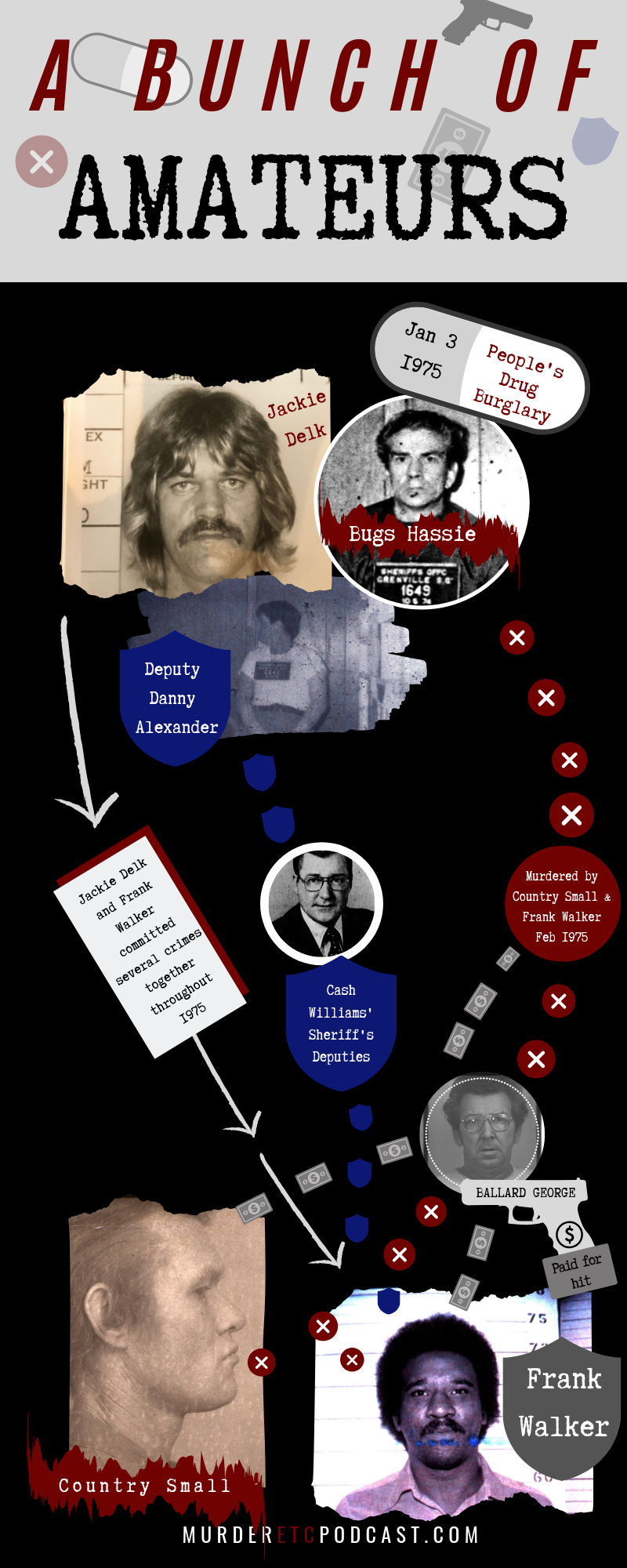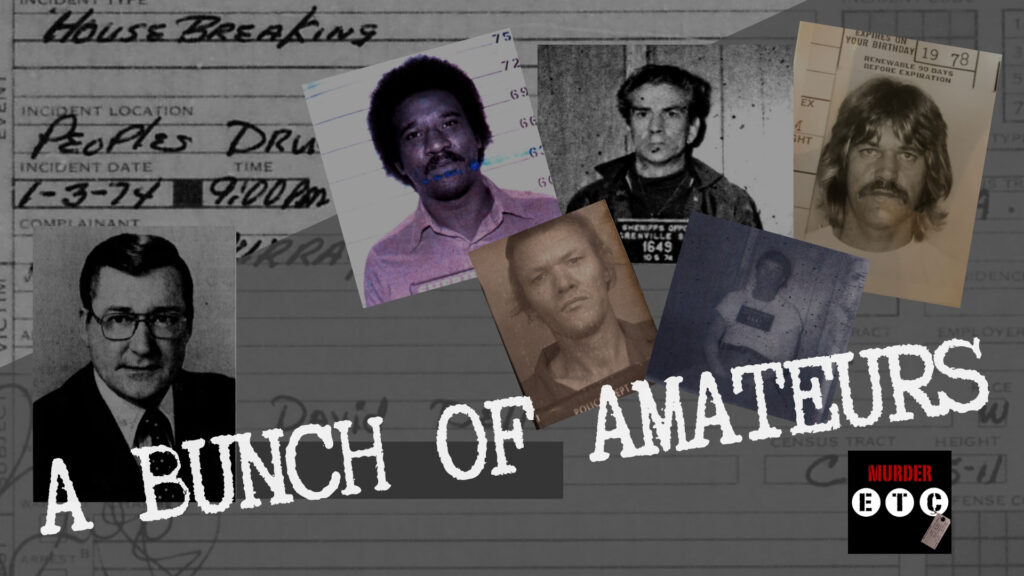Episode 26: 2020 Hindsight
A new closing argument for 2020
A new closing argument for 2020
Bombshell admission of new evidence accusing a lawman of the Looper murders
A family secret, a hidden gun, and some of the most dramatic developments in the Murder, etc. story to date
The Looper Murders investigators never considered one man a suspect…even if generations of cops still do.
What does it mean to be a good cop? Does it require justice?
A Bunch of Amateurs is based on a quote from 1975 Greenville County Sheriff Cash Williams who, just a few weeks before Frank Looper’s murder, said his county didn’t have an organized crime problem. Sheriff Williams said his county only had to worry about a bunch of amateurs. For more, read the show notes or listen to the episode above.



A Bunch of Amateurs is based on a quote from 1975 Greenville County Sheriff Cash Williams, who said his county didn’t have an organized crime problem.
It begins with a bungled drug crime that took place four weeks before Frank Looper died, and it introduces the infamous Greenville drug thief and drug dealer behind it, Jackie Delk.
Listeners are then introduced to Ivan Nachman (aka Ryan Quade Emerson), the internal affairs investigator hired by Greenville County Sheriff Cash Williams. Listeners learn just how damaging it can be for a lawman to hire someone to investigate his own department.

Unexpected Company begins Murder, etc.’s deep dive into the documents, pictures, and stories that Greenville County has never heard about the Looper murders. It includes an interview with one of the last people to speak to Frank Looper, new details of what Looper’s mother told police, a possible explanation for why some eyewitnesses weren’t called at trial, revelations about the crowded crime scene, and previously unrevealed report that supported the theory that a hit man killed the Loopers. For more, read the show notes or listen to the episode above. For more details not covered in the podcast episode, read KILLER below.
Carl “Bub” Skelton was an expert in catching crooks. It’s easier when you’re a crook yourself.